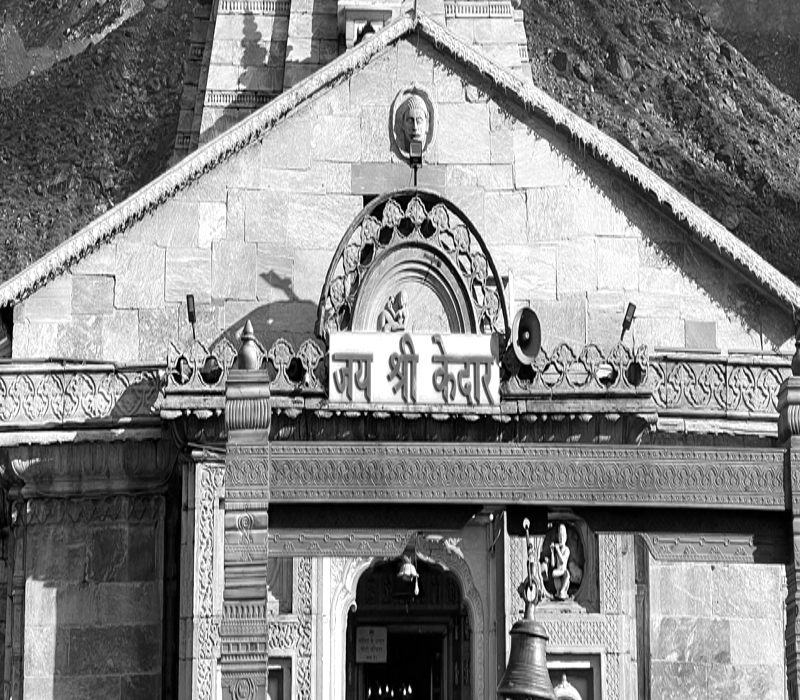- Offices: Dehradun | Dwarka New Delhi
Dhwaj Temple, Pithoragarh, Uttarakhand: A Spiritual Beacon Amidst Himalayan Serenity - Nestled in the lap of the Himalayas, the state of Uttarakhand in India is a land of spiritual sanctity, natural splendor, and cultural richness. Among its many spiritual havens, the Dhwaj Temple in Pithoragarh emerges as a sacred gem, drawing pilgrims, seekers, and travelers to its serene ambiance and profound significance. In this comprehensive exploration, we embark on a journey to uncover the spiritual allure of the Dhwaj Temple, its historical background, architectural marvel, cultural resonance, and the transformative experience it offers to all who embark on its sacred path.
A Glimpse of Dhwaj Temple's Sanctity:
Perched on a picturesque hill in Pithoragarh, the Dhwaj Temple stands as a symbol of spiritual devotion and architectural brilliance. The temple's name, "Dhwaj," translates to "flag" in English, and it is often referred to as the "Flag Temple." This appellation is derived from the flag that stands atop the temple, signifying its prominence and sacred significance.
The temple's elevated location allows for breathtaking panoramic views of the Himalayan ranges, providing a backdrop that exudes tranquility and an aura of divine presence. The Dhwaj Temple isn't just a physical structure; it's a spiritual sanctuary that invites pilgrims and visitors to connect with their inner selves and the greater cosmic forces.
Historical and Cultural Background:
The history of the Dhwaj Temple dates back centuries, intertwining with the region's rich religious heritage and cultural tapestry. The temple is dedicated to Lord Shiva, a principal deity in Hinduism, and it is believed to have been constructed by Adi Shankaracharya, a revered philosopher and saint. Adi Shankaracharya's teachings and contributions to Hinduism have left an indelible mark on the spiritual landscape of India, and the Dhwaj Temple stands as a testament to his legacy.
The temple's historical significance extends to its connection with the epic Mahabharata. It is believed that the Pandavas, central figures in the Mahabharata, visited the region during their exile and established the temple as a homage to Lord Shiva. This association adds a layer of spiritual depth to the temple's identity and draws pilgrims seeking to connect with the saga of ancient India.
Architectural Grandeur:
The architectural marvel of the Dhwaj Temple reflects a harmonious blend of spiritual symbolism and aesthetic grace. Built in the traditional North Indian style, the temple's structure is characterized by its intricate carvings, ornate domes, and meticulously crafted facades. The use of locally sourced materials not only adds to its authenticity but also integrates the temple seamlessly with the surrounding natural beauty.
The sanctum sanctorum houses the sacred idol of Lord Shiva, sculpted with meticulous attention to detail that reflects the mastery of the artisans. The temple's corridors and halls are adorned with intricate murals and frescoes depicting stories from Hindu mythology, transporting visitors to a world of divine narratives.
Cultural Resonance and Pilgrimage:
The Dhwaj Temple holds deep cultural resonance for both local communities and devotees from afar. The temple serves as a center of spiritual and cultural gatherings, particularly during significant festivals and events. Festivals like Mahashivaratri, Navratri, and Diwali witness an influx of pilgrims who gather to offer prayers, perform rituals, and seek blessings from the divine.
The temple's ambiance during these festivities is charged with devotion and reverence, creating an atmosphere that resonates with the collective faith of those who visit. The cultural unity and shared spiritual experience that these gatherings foster create a sense of belonging and connection among the devotees.
Transformative Spiritual Experience:
For seekers and spiritual enthusiasts, the Dhwaj Temple offers an opportunity for introspection, meditation, and self-discovery. The temple's serene setting and the rhythmic chants of sacred mantras create an ambiance that aids in quieting the mind and deepening one's connection with the divine.
Many pilgrims embark on the journey to the Dhwaj Temple not merely as a physical excursion, but as a pilgrimage of the soul. The uphill path to the temple becomes symbolic of the seeker's inner journey, marked by challenges, dedication, and eventual union with the divine. As visitors stand before the deity's sacred idol, a sense of peace and spiritual rejuvenation envelops them, leaving an indelible mark on their hearts.
Preservation and Reverence:
As the Dhwaj Temple gains recognition for its spiritual significance and architectural splendor, the importance of its preservation becomes crucial. Local communities, along with governmental bodies and cultural organizations, play a pivotal role in maintaining the temple's authenticity and sanctity.
Efforts to ensure responsible tourism and sustainability are essential to strike a balance between the temple's increasing footfall and its pristine surroundings. Initiatives that promote eco-friendly practices, waste management, and community involvement contribute to the temple's longevity while preserving its connection to the environment.
Conclusion:
The Dhwaj Temple, perched atop a hill in Pithoragarh, Uttarakhand, is more than a physical structure; it's a testament to the profound journey of the soul seeking spiritual enlightenment. Its historical significance, architectural grace, and serene ambiance invite seekers, devotees, and travelers to embark on an inner quest that transcends the ordinary and leads to a realm of divine connection.
As you ascend the path to the Dhwaj Temple, you're not just climbing steps; you're ascending to a higher plane of consciousness where the mundane concerns of the world fade away. The temple's majestic presence and the Himalayan backdrop inspire a sense of reverence, humility, and awe before the mysteries of existence. The Dhwaj Temple stands as a beacon of spiritual light, guiding all who approach with an open heart to experience the beauty, sanctity, and transformative power of divine connection.

